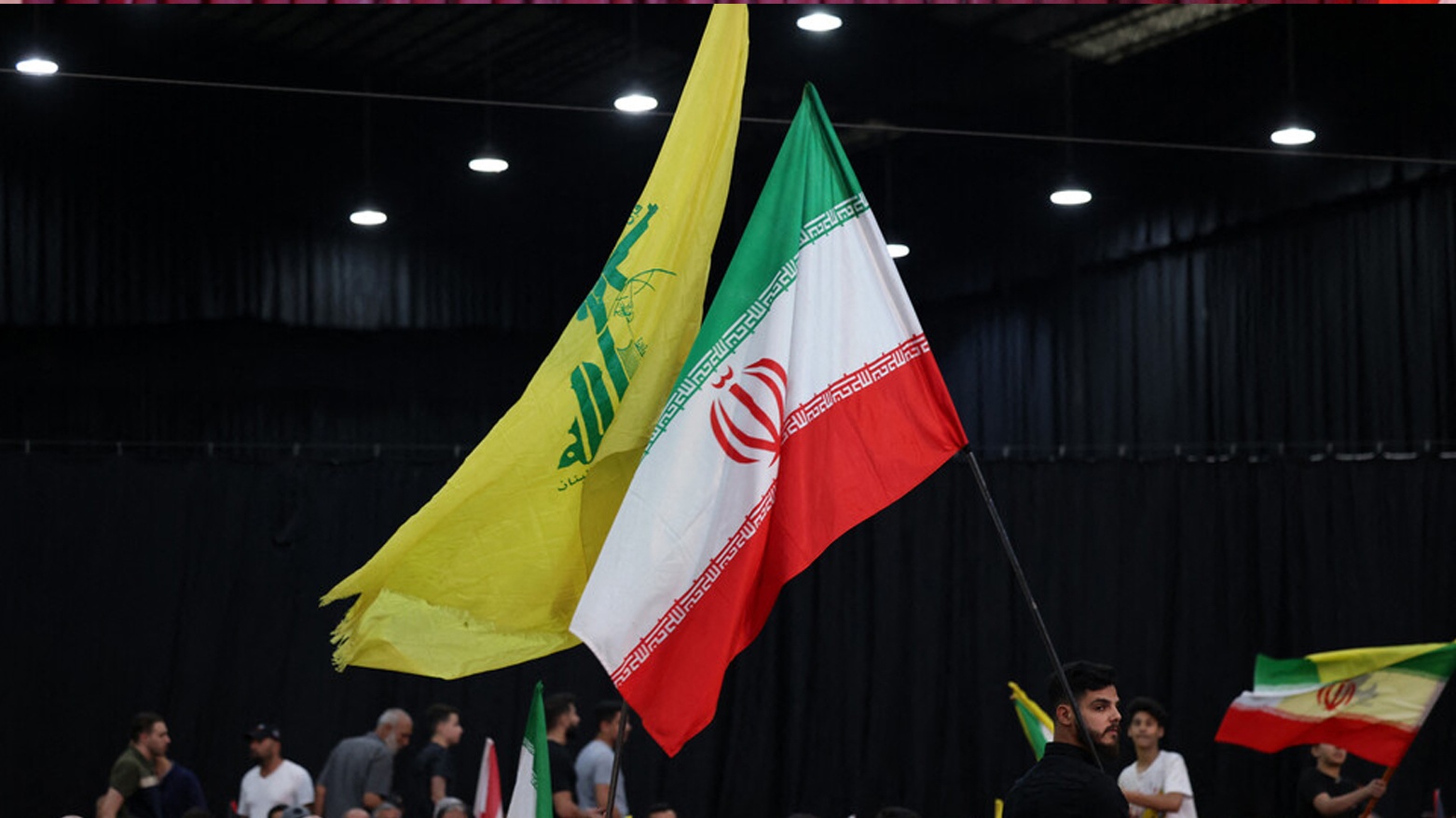Iran Analysts Warn: Disarming Hezbollah Could Ignite Civil Conflict in Lebanon
Iranian analysts warn disarming Hezbollah could trigger civil conflict in Lebanon, calling it a US-Saudi project. They argue the group's weapons are essential for Shiite protection and regional resistance.

ERBIL (Kurdistan24) – Iranian political and media experts have strongly cautioned that the proposed disarmament of Hezbollah is not a Lebanese national decision but rather an American- and Saudi-backed project that risks plunging Lebanon into civil strife.
On Sunday, Iran’s Mehr News Agency hosted a conference attended by a number of Iranian and Lebanese specialists, where participants presented their evaluations on the controversial issue.
According to the experts, the decision does not reflect an internal Lebanese consensus, but instead has been pushed by Washington and Riyadh. They pointed to political and media figures such as Joseph Aoun and Nawaf Salam as cooperating with U.S. efforts to advance this project. Moreover, the withdrawal of Shiite ministers from cabinet meetings has meant that the proposal lacks national consensus and therefore cannot be implemented.
Mohammad Reza Moradi, head of international affairs at Mehr Agency, said the Lebanese cabinet raised the issue of Hezbollah’s disarmament at a time when experts consider it a “double-edged sword” that could destabilize the country’s fragile security.
He explained that removing the arms of Hezbollah, considered the main protective force of Shiites, would be dangerous while five southern Lebanese areas remain under Israeli occupation and communities there face direct threats.
Mohammad Sarfi, editor-in-chief of Tehran Times, emphasized that the Hezbollah disarmament issue is deeply tied to Iran. Beyond Tehran’s support for Hezbollah, Sarfi argued that Middle East and West Asian crises are interconnected, particularly after the events of October 7 and the “Al-Aqsa Storm” operation.
“The developments in Lebanon affect Iran’s national security,” he said. “We must view the region’s crises from the perspective of national interests and regard them as our own.”
Ahmad Dastmalchian, Iran’s former ambassador to Lebanon and Jordan, described the current moment as a transitional stage in regional and global affairs.
“We are witnessing the dismantling of the old system and the gradual emergence of a new one,” he stated. “Two opposing poles now stand face to face: Israel and its allies on one side, and Iran with the resistance front on the other. Each side is speaking in terms of war and survival. This is not an ordinary conflict—it is existential.”
He stressed that Hezbollah’s disarmament is not a new debate, recalling that the United States, Israel, and even the Arab League have long targeted Hezbollah’s weapons, repeating what he described as “strategic mistakes.” According to him, Hezbollah’s arms are widely viewed in Lebanon as a matter of honor and national dignity, uniting different sects under a collective resistance identity.
Mohammad Khajavi, head of the Lebanon Research Group at the Middle East Strategic Research Institute, criticized the logic behind calls for disarmament.
“The argument that weapons must be under the control of the national army is theoretically sound,” he said, “but the real question is whether the Lebanese state and its army have proven their capacity to protect the people. The experience of the past four decades clearly shows otherwise.”
He insisted that the Lebanese Army has consistently failed to guarantee national defense, reinforcing Hezbollah’s claim to remain armed.
Mohammad Ali Hassan Nia, an expert on Arab world affairs, noted that before the Islamic Revolution in Iran, Lebanese Shiites were marginalized and vulnerable. Afterward, they regained their strength, with Hezbollah securing the right to bear arms under one of the Taif Accord’s clauses.
He argued that Hezbollah’s military capabilities—including missiles and drones—cannot be easily stripped away. “Even if Hezbollah were to hand its weapons to the Lebanese Army, the army lacks the capacity to use them, as it is only equipped with light arms. The true goal of Hezbollah’s adversaries is not to transfer its weapons to the army, but to eliminate them altogether.”
Zeinab Farhat, a Lebanese political analyst at Nabaa television, stressed that the decision to disarm Hezbollah is externally imposed.
“This is not a Lebanese national decision,” she declared. “It is an American decision. U.S. envoy Tom Barrack openly warned that if Lebanon does not implement this project, it will face a bleak future.”
Farhat underlined that Hezbollah has already clarified its position: it will never accept disarmament. “If Hezbollah is threatened internally by any political faction, it is prepared to defend itself. Its arms are directed solely against Israel, and any attempt to strip them will only invite greater conflict.”
Analysts concluded that the disarmament plan cannot be implemented under Lebanon’s current political realities. They warned that forcing the issue risks triggering civil conflict and undermining Lebanon’s fragile stability.
For Tehran’s experts, Hezbollah’s arms are not merely a Lebanese matter, but part of Iran’s broader regional security equation—one in which the survival of states and movements is at stake.
